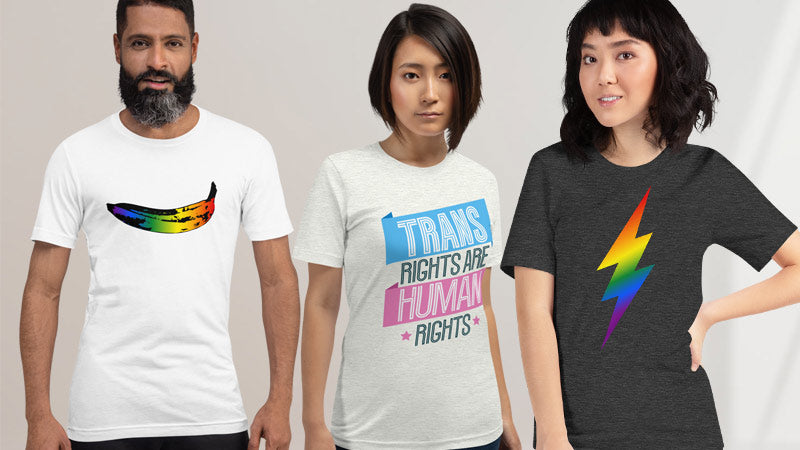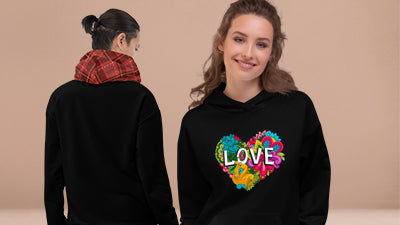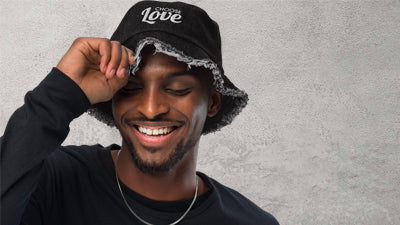How Greta Gerwig's Barbie Is The Ultimate Queer And Trans Icon

If you haven’t already seen the new Barbie movie what have you been doing! Yes it’s a bubbly, bright, explosion in pink. But it’s also the most extraordinary, life affirming allegory for queer and trans lives that you’ll ever see. How, you ask? Well strap in, because I've got ten fabulous reasons why the Barbie movie is all about LGBTQ+ realness.
The film’s writer and director Greta Gerwig is no stranger to challenging norms and reinventing cinematic narratives. We saw in her Oscar nominated films Lady Bird and Little Women that she has an incredible talent for portraying complex female characters with depth and authenticity.
With Barbie though, Gerwig takes this talent a step further by subverting the very essence of the doll's traditional image as an icon of oppressive femininity and masculine desire. And replaces it with something entirely opposite.
Her subversion aligns beautifully with the LGBTQ+ lived experience, where individuals often defy societal norms to embrace our true selves. By portraying Barbie as a symbol of acceptance, inclusivity, and self-discovery, who defies expectations and embraces her individuality, Gerwig has created a figure that resonates deeply with those who have faced similar struggles in coming to terms with their identity.
So let’s get started with our rollercoaster of reasons why Barbie is going to rocket to the stratosphere as one of the great queer icons of our time.
Barbie Defies Gender Norms
Who’d have believed that the archetypal all American girl would turn out to be a gender rebel. She may look glam with her perfect blonde hair and penchant for pink, but this doll defies stereotypes. While her friends in Barbieland obsess over finding their Ken doll prince, Barbie dreams bigger. She tries on every career under the sun, from astronaut to president, defying traditional gender roles.
Barbie rejects tired ideas about how women should look, act and live. And this parallels the queer and trans experience of bucking the gender binary and societal expectations. By portraying Barbie's fluidity, Gerwig signals her commitment to representing the rich tapestry of identities within the community, underscoring that there is no one way to be gay, lesbian, trans, non-binary or any of the other identities in the LGBTQ+ community.
Barbie Feels Like An Outsider
We’ve all felt like an outsider for being our amazing selves? Well, Barbie can relate! When she leaves the too-perfect world of Barbieland for the flawed real world, she faces the same "otherness" LGBTQ+ peeps often feel in a cisheteronormative society. But her dazzling diversity is an asset, not a flaw! She may not quite match the status quo, but this fashionista stays fierce and dedicated to discovering her true passion.
SHOP OUR COLLECTION view the full rainbow pride collection
Barbie Explores Her Identity
Now, who says you can't reinvent yourself? Certainly not Ms. Barbie! She tries on a rainbow of fun personas as she searches for the career of her dreams. Talk about a makeover montage! Barbie's not afraid to experiment with different styles that better match her evolving self-image.
And that’s something so many of us have experienced as we’ve played with gender expression through clothing, hairstyles, makeup and more. Or searched for our authentic self.

Barbie Embraces Diversity
Central to Greta Gerwig's vision for Barbie is her commitment to inclusivity and diversity. The film's universe reflects the real world, and her friends include people of different races, sizes, identities and backgrounds. This reflects our community's push for visibility and acknowledgment of different identities - chosen families who accept and embrace each individual. The expansive world Gerwig creates underscores that everyone's story is valuable and deserving of recognition, fostering a sense of belonging and validation for LGBTQ+ peeps. Love wins when we stand together!
Barbie Challenges Stereotypes
Barbie has long been associated with rigid beauty standards and limiting stereotypes. But this version of the iconic doll shatters these constraints by presenting Barbie as a figure who challenges and breaks down societal expectations.
This aligns seamlessly with the LGBTQ+ community's ongoing fight against stereotypes and misconceptions. The film's emphasis on embracing individuality, defying labels, and pursuing passions regardless of expectations is a powerful testament to the community's efforts to be seen and accepted for who we truly are. Barbie’s not just a doll, she’s a possibility model!
Barbie Stands Up To Bullies
Of course, rewriting the rules isn't always easy. Barbie faces plenty of ridicule for being different. But with courage and polish, she stays true to herself. For queer and trans kids who encounter discrimination and bullying, Barbie's resilience hits home.
At the core of Gerwig's adaptation lies a theme of empowerment and resilience, qualities that resonate deeply with anyone in the LGBTQ+ community. Barbie's journey in the film, much like the struggles many of us face, emphasises empowerment in the face of adversity.
By portraying Barbie and other characters as individuals who navigate challenges while remaining true to themselves, Gerwig fosters a narrative that aligns with the LGBTQ+ community's collective journey toward self-love and self-empowerment.
Barbie Has A Hero Journey
There is an amazing personal transformation at the heart of Barbie's story. Her heroic journey of self-discovery as she evolves from a figure of beauty to a symbol of authenticity and empowerment.
And this resonates with the profound changes queer and trans individuals experience when transitioning or coming out, breaking free from societal norms to embrace our true self.
It's about blossoming into your most beautiful, content, fulfilled self - inside and out! And also our demand to be seen beyond surface-level stereotypes.

The Importance Of Found Family
Of course, Barbie didn't take this journey alone. While she leaves behind her homemade family in Barbieland, she’s forced to find her community in the real world.
Building found family who see us for who we are, when our biological relatives are less accepting, has always been such a huge part of our lived experience as a community. Surround yourself with love and positive people who cherish the real you!
Bring Down The Patriarchy
The film does away with Barbie’s traditional stereotypical romantic narrative that centres on Ken, which gives her control over her identity and future.
By celebrating inclusive concepts of beauty, and portraying Barbie in queer relationships, the film ridicules patriarchal norms and exposes absurd limitations and contradictions of the patriarchy through humour and playful genre-blending.
Barbie’s story becomes a vehicle for critiquing regressive gender roles that deny women autonomy.
Barbie Validates Our Dreams
Last but certainly not least, Barbie represents the belief that we can all transform into our dreams. With courage, an open heart and the support of loved ones, limitless potential awaits. For queer and trans kids and adults embarking on a journey of self-discovery, this is an uplifting and validating message. Be bold, dream big! Anything is possible once you accept and love yourself for who you are.


Barbie Is The Ultimate Queer Icon
Through a sophisticated blend of storytelling elements that resonate with our people plus the use of queer iconography Greta Gerwig's adaptation had redefinined Barbie is the ultimate queer icon.
From her deliberate casting of openly LGBTQ+ actors Hari Nef, Alexandra Shipp, and Scott Evans to her use of fluid identity, inclusivity, and the overarching narrative of authenticity and empowerment, Gerwig has crafted a story that aligns with the values and aspirations of our people and our evolving concept of queer representation.
By recasting her as an independent, queer-positive character who rejects outdated gender roles, Gerwig defiantly confronts the patriarchal norms at the root of the brand’s identity. This subversive new Barbie calls for radical acceptance, free self-expression, and female empowerment unconstrained by the male gaze.
Gerwig told Out Magazine, “There’s no way we could have told this story without bringing in the LGBTQ+ community, and it was important for us to represent the diversity that Mattel has created with all of the different Barbies and Kens that exist today.”
Barbieland imagines a utopia where identities once marginalised thrive joyfully. The plastic doll confined to superficial pursuits becomes a fierce, flawed, fearless agent of change, toppling the patriarchal paradigm that shaped her, and giving us all a vision of how we could finally grasp that ‘best life’ we keep talking about.












